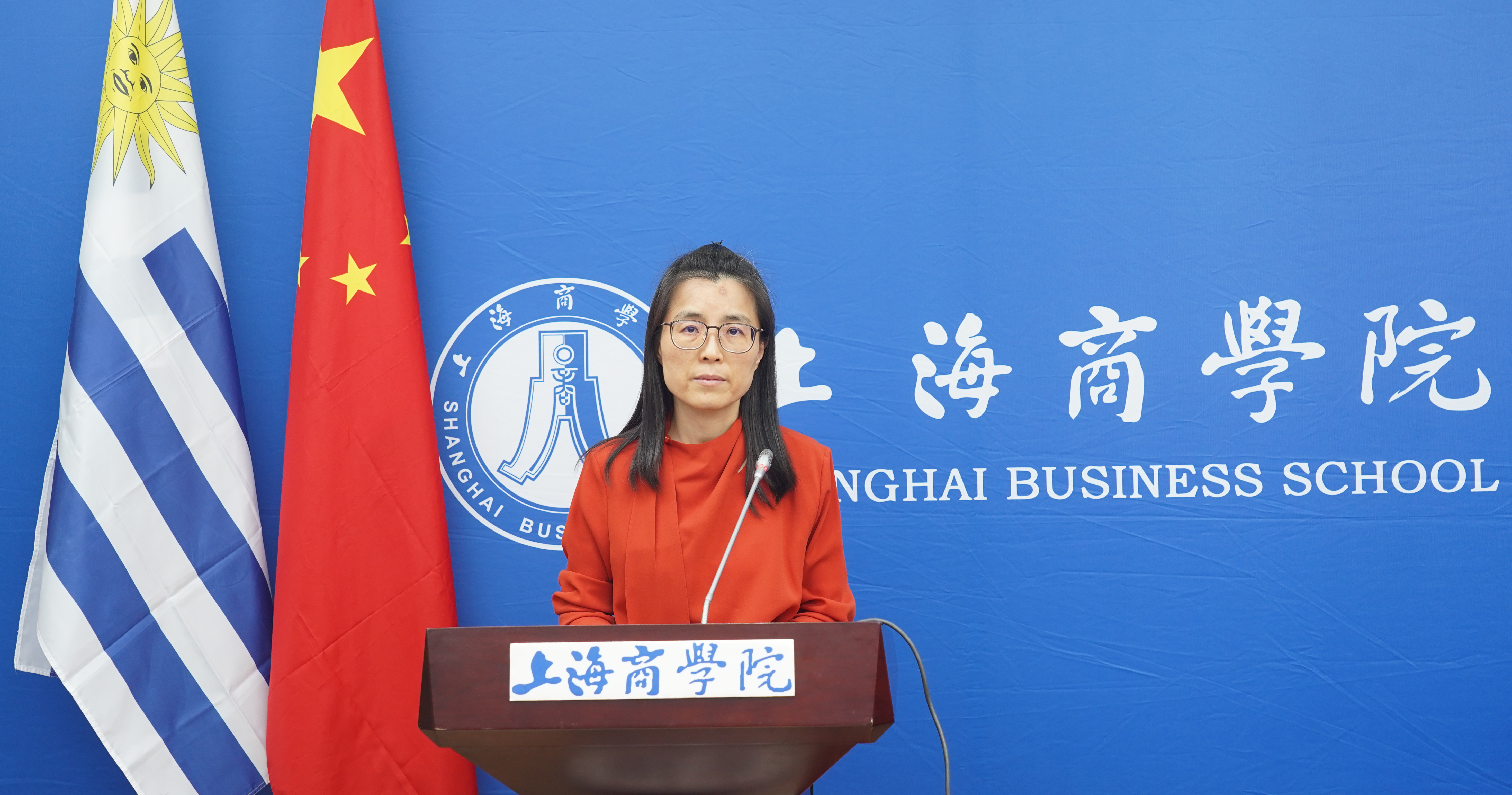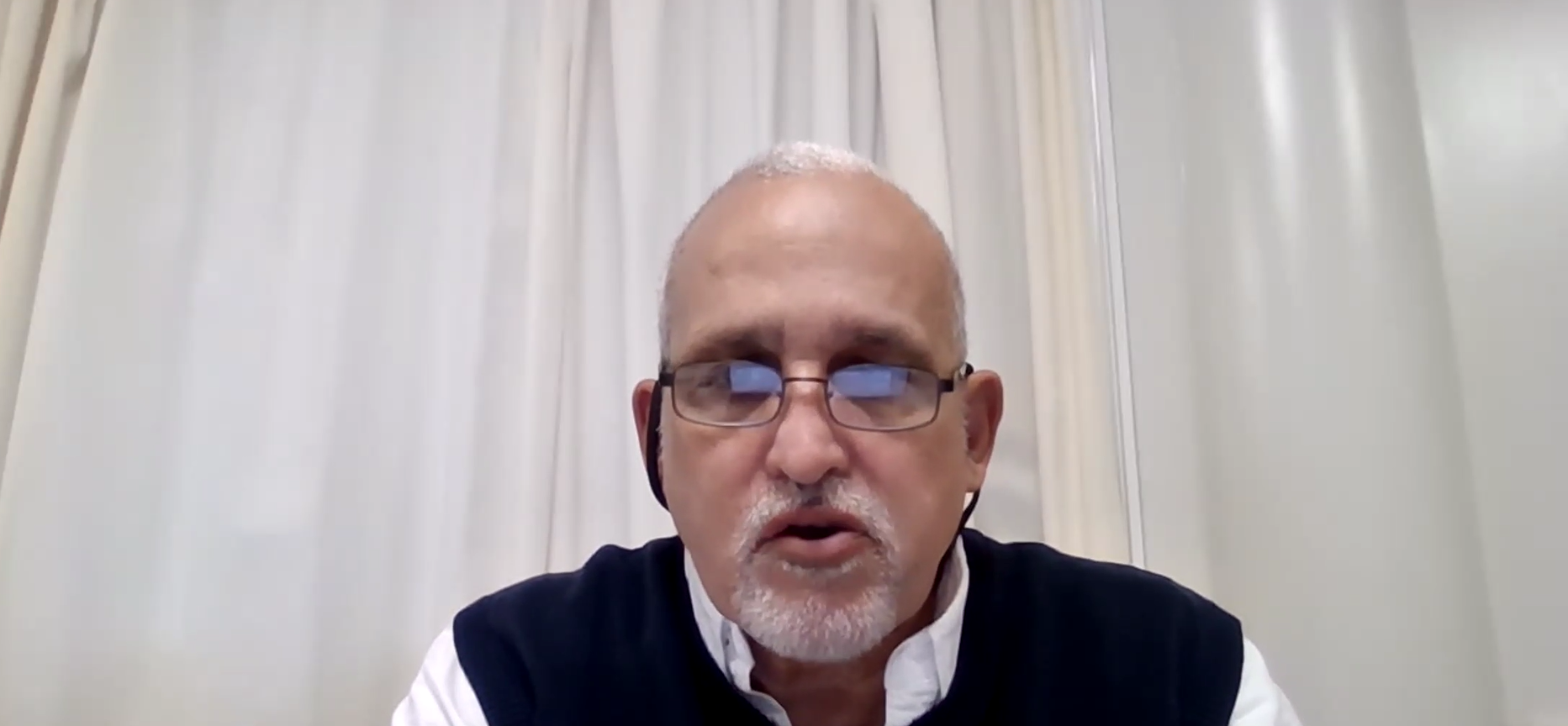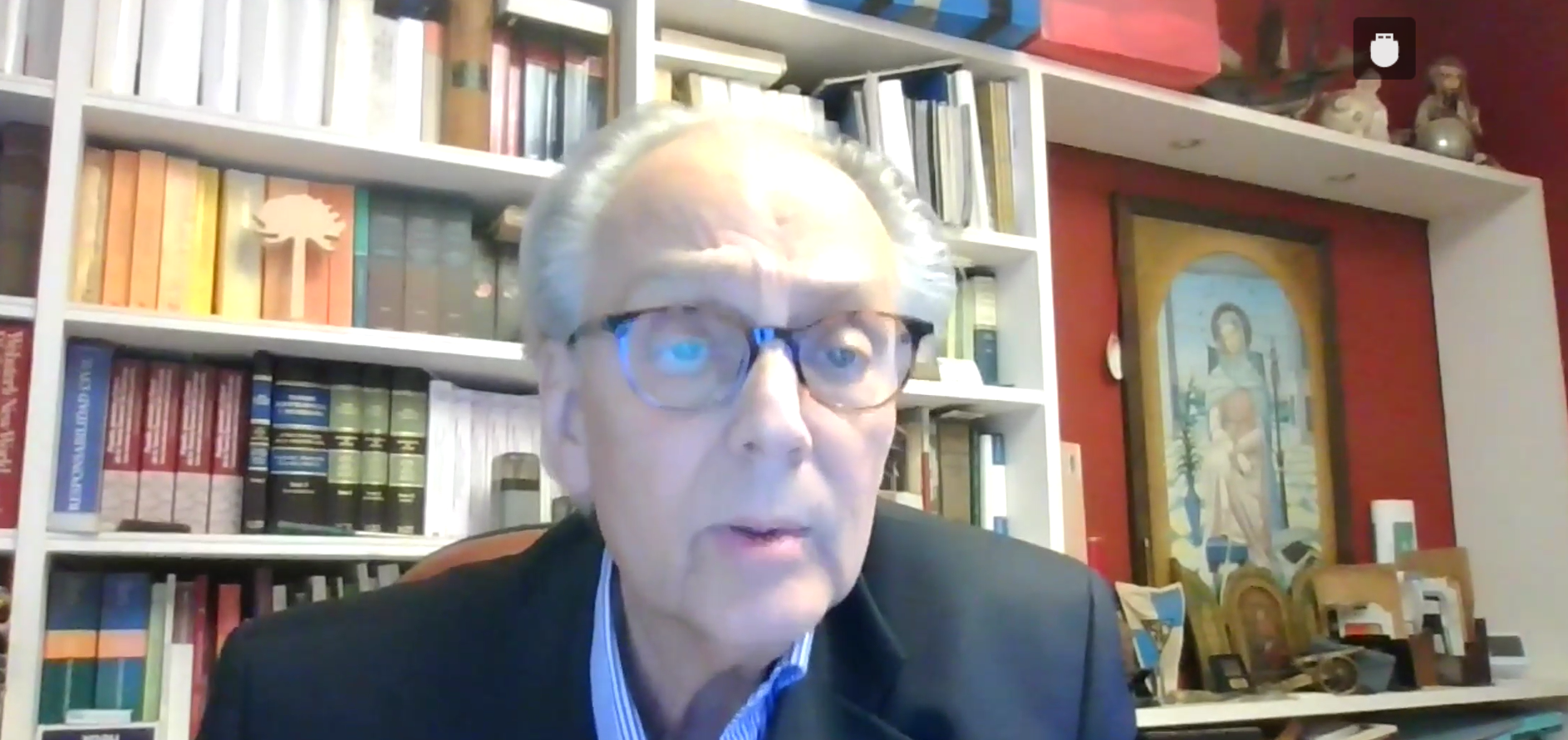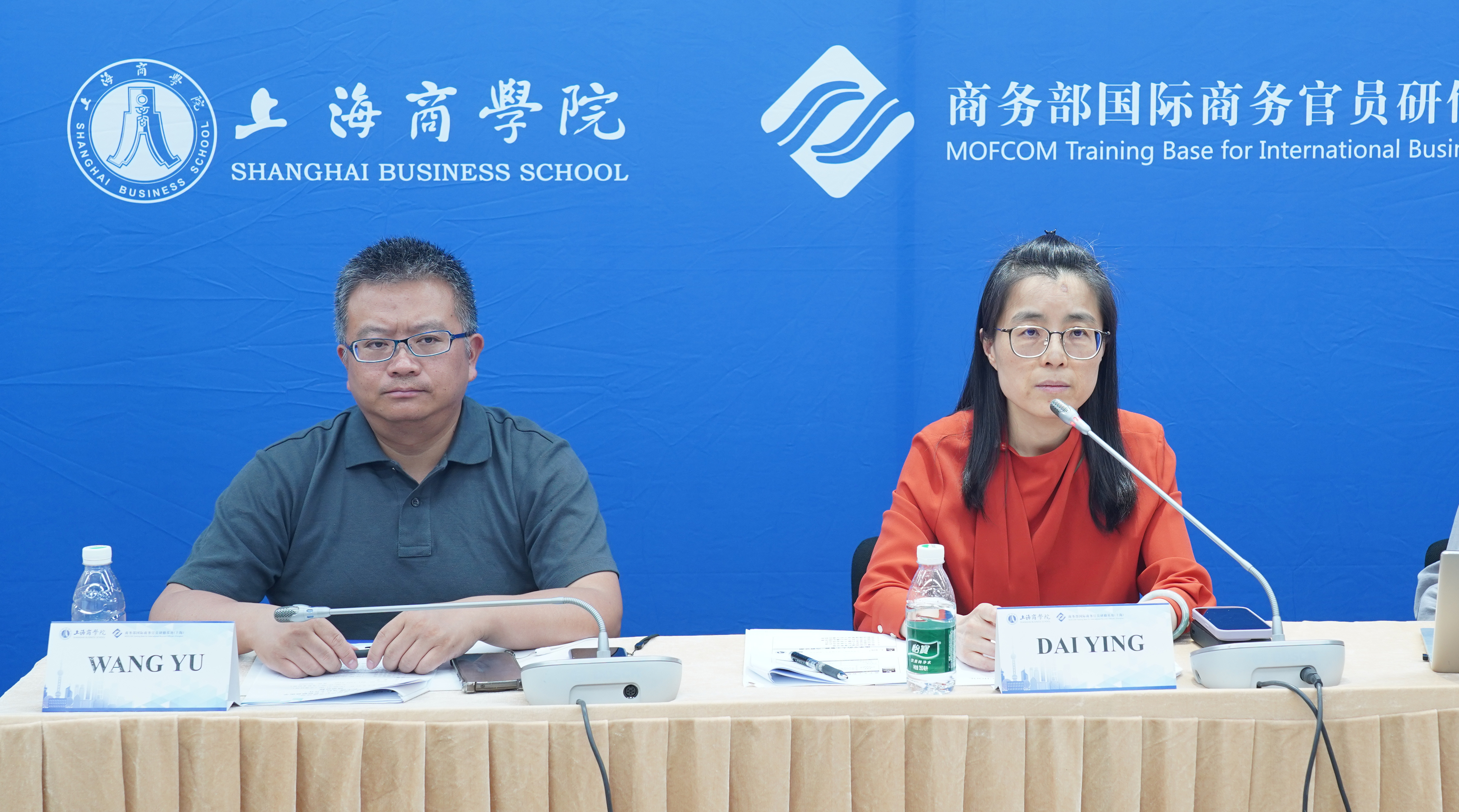On the evening of May 27th, Beijing time, SBS held a post-seminar exchange event themed "Innovation without Borders: AI Empowering Medicine and China-Uruguay Cooperation". The event was attended by Gonzalo de León, President of the Sandu Research Center of Uruguay, Carlos de Cres, Rector of the Latin American University of Humanities and Economics (ULAEH), Edgardo Sandoja, Professor of the School of Medicine, Wang Yu, Researcher of the Chinese Academy of Sciences, and 24 alumni from Spanish-speaking countries who participated in SBS foreign aid training programs. The event was moderated by Dai Ying, Vice Director of the College of International Education of SBS and the Ministry of Commerce Training Base for International Business Officials (Shanghai).
Vice Director Dai Ying extended a warm welcome to all participants on behalf of the university. She emphasized that digital technologies are reshaping the global health governance landscape, and that China and Uruguay's joint exploration of AI medical innovation is a vivid example of building a community with a shared future for mankind. She expressed her hope that this exchange would serve as a springboard for exploring new spaces and areas for collaboration between the two countries.

In his opening remarks, President De León highly praised China's breakthroughs in intelligent medicine. He noted that, from reducing patient waiting times to early cancer screening technologies, China's experience in AI applications provides a valuable model for the transformation of healthcare in Latin America. He considered this event a beneficial exploration of mutually beneficial and win-win cooperation between the two countries.

Rector Carlos expressed his gratitude to Shanghai Business School and the Sandu Research Center of Uruguay for their significant contributions to the event. He specifically mentioned that the inter-university strategic cooperation agreement reached during Shanghai Business School's visit to Uruguay in 2024 was a milestone achievement, and he expressed his hope for deeper exchanges between the two institutions in more areas in the future.

Wang Yu, Researcher, delivered a keynote speech titled "Artificial Intelligence Powering Medical Innovation: The (Computing Power) Ranch, the (Algorithm) World Cup, and the (Intelligent Agent) Tango". He systematically explained the "China Solution" for the construction of medical AI infrastructure to the experts present, covering a full range of AI medical applications from the precise control of the Da Vinci surgical robot to lightweight rehabilitation assessment models, from large-data genomic map ecosystems to emergency room traffic prediction algorithms. China has formed a full-chain AI medical matrix covering prevention, diagnosis, treatment, and rehabilitation.
The "APTS Key Patient Tracking System" presented by Wang Yu during his speech generated particular interest from the Uruguayan side. This system, utilizing large medical models, achieves intelligent screening of tens of thousands of medical records daily, increasing the recall rate for hepatobiliary surgery patients to 51%. From large-data genomic map ecosystems to 5G+8K remote surgery collaboration platforms, China has developed a unique and distinctive AI medical innovation paradigm.
Wang Yu also introduced the practical achievements of the Shanghai New Hongqiao International Medical Center. By coordinating a supercomputing center, edge computing nodes, and a volunteer computing network, a three-tiered distributed medical computing power ecosystem can be built. This replicable technical architecture offers a new option for the intelligent transformation of healthcare in developing countries.

Chinese and foreign experts and scholars also engaged in active discussions on current hot topics in the field of AI medicine. Professor Sandoya presented empirical research from a Latin American perspective. An AI diagnostic system trained on 340,000 X-ray images by the Uruguayan team improved the detection rate of breast cancer by 17.6%. He also proposed a "hybrid intelligence" solution—combining Uruguay's family doctor system with an AI early warning system, which has already achieved a 40% increase in the efficiency of chronic disease management in community healthcare.
Currently, artificial intelligence is reshaping the global healthcare landscape at an unprecedented rate. According to the World Health Organization, 85% of global AI innovation projects are concentrated in developed countries, while developing countries face an urgent need for the intelligent transformation of healthcare resources. China, as a major source of digital medical technology, has established a leading advantage in areas such as intelligent image diagnosis, surgical robots, and gene sequencing. Uruguay, as a pioneer in digital healthcare in Latin America, with a national electronic health record system covering 98% of the population, is also actively exploring the deep integration of AI with primary healthcare.
The successful holding of this event is both a concrete action in implementing the national initiative of jointly building the Belt and Road, and an innovative exploration of the concept of a global community of health for mankind. The cross-time-zone (12-hour difference) virtual dialogue between Chinese and Uruguayan experts is a vivid example of global South countries working together to overcome the "digital divide" and reconstruct the medical innovation ecosystem. It marks a transition of artificial intelligence technology from single-point breakthroughs to cross-domain collaboration, providing a model of international cooperation for building a fair and equitable new paradigm of intelligent healthcare.
As an international business officials training base authorized by the Ministry of Commerce, SBS has always been committed to doing a good job on the "second half" of training programs, and with the support of Uruguayan alumni and Carlos Martín Piovano Andrioló, Director of International Relations at the Paysandu Research Center, has held five China-Uruguay bilateral post-training exchange events since 2020. These events included personnel exchanges, online forums, and workshops. In the future, SBS will continue to improve the long-term mechanism for post-training services for participants, striving to create a model for international educational cooperation and achieve a transformation and upgrading of training from knowledge "transfer" to mutual "co-creation".
Written by: Liu Liu
Photograph by: Liu Liu
Reviewed by: Chen Wei